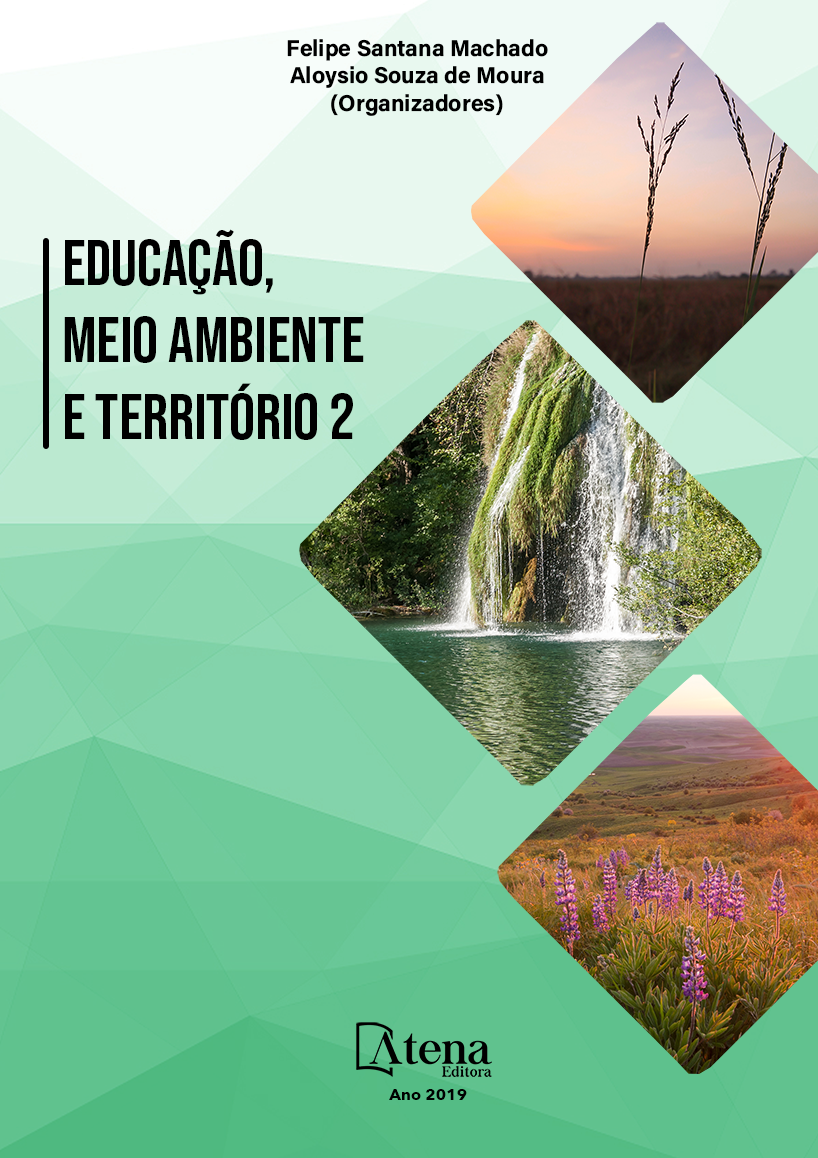
VARIAÇÃO ESPACIAL DO FITOPLÂNCTON DO RIO URIBOCA (BELÉM, PARÁ) DURANTE O PERÍODO DE MAIOR PRECIPITAÇÃO
O Rio Uriboca está localizado
na Região Metropolitana de Belém (Pará) e
atravessa o Refúgio da Vida Silvestre- REVIS
Metrópole da Amazônia. O rio é margeado por
mata ciliar, floresta de várzea e populações
ribeirinhas. O objetivo é avaliar a variação
espacial do fitoplâncton no Rio Uriboca
associado aos fatores físico-químicos da água.
Foram estabelecidas quatro estações de coleta
no mês de abril/2016 em marés de enchente e
vazante. O fitoplâncton qualitativo foi coletado
com redes de plâncton, fixado com solução
de transeau e analisado em microscopia
óptica. O fitoplâncton quantitativo foi coletado
diretamente na subsuperfície da água, fixado
com lugol acético e analisado em invertoscópio.
Foram analisados os fatores físico-químicos da
água e foi calculado o IET. Foram identificadas
77 espécies do fitoplâncton. As estações mais
próximas à foz do Rio Uriboca apresentaram
maiores densidades do fitoplâncton com 399,7
x 103 ind/L e 241,6 x 103 ind/L, respectivamente
nas estações PT01 e PT03, onde Aulacoseira
granulata foi dominante. As estações mais
próximas às nascentes do rio apresentaram
as cianofíceas com maiores densidades. O
ambiente foi caracterizado como ultraoligotrófico.
Os maiores valores temperatura, STD, C.E,
STS e pH e as menores concentrações de COD
e fósforo total possivelmente contribuíram para
a maior densidade fitoplanctônica na estação
PT01Enc. A abundancia das cianofíceas
Pseudanabaena sp.1 e Pseudanabaena sp.3
evidencia a necessidade do conhecimento
sobre a dinâmica destes organismos para
gerenciar esta área, visto que estas espécies
possuem registro na literatura de formação de
florações e produção de cianotoxinas.
VARIAÇÃO ESPACIAL DO FITOPLÂNCTON DO RIO URIBOCA (BELÉM, PARÁ) DURANTE O PERÍODO DE MAIOR PRECIPITAÇÃO
-
DOI: 10.22533/at.ed.43519210219
-
Palavras-chave: Diatomáceas, Cianofíceas, Rio Guamá
-
Keywords: Diatoms, Cyanophytes, Guamá River
-
Abstract:
The Uriboca River is located in the Metropolitan Region of Belém (Pará)
and crosses the Wildlife Refuge - REVIS Metropolis of the Amazon. The river is
bordered by ciliary forest, floodplain forest and riverine populations. The objective is
to evaluate the spatial variation of the phytoplankton in the Uriboca River associated
to the physical-chemical factors of the water. Four collection stations were established
in April/2016 in flood and ebb tide. The qualitative phytoplankton was collected with
plankton networks, fixed with transeau solution and analyzed under light microscopy.
Quantitative phytoplankton was collected directly in the subsurface of the water, fixed
with acetic lugol and analyzed in invertoscope. The physical-chemical factors of the water
were analyzed and the TSI was calculated. A total of 77 species of phytoplankton were
identified. The stations closest to the mouth of the Uriboca River had higher densities
of phytoplankton with 399.7 x 103 ind/L and 241.6 x 103 ind/L, respectively in stations
PT01 and PT03, where Aulacoseira granulata was dominant. The stations closest to
the river sources presented the highest densities of cyanophytes. The environment
was characterized as ultraoligotrophic. The highest values of temperature, TDS,
E.C, TSS and pH and the lowest DOC and total phosphorus concentrations possibly
contributed to the higher phytoplankton density at station PT01Enc. The abundance of
the cyanophyte Pseudanabaena sp.1 and Pseudanabaena sp.3 evidences the need of
knowledge about the dynamics of these organisms to manage this area, since these
species are registered in the literature of flowering formation and cyanotoxin production.
-
Número de páginas: 15
- Aline Lemos Gomes
- Celly Jenniffer da Silva Cunha
- Samara Cristina Campelo Pinheiro
- Vanessa Bandeira da Costa Tavares
- Eliane Brabo de Sousa
- Rubney da Silva Vaz


